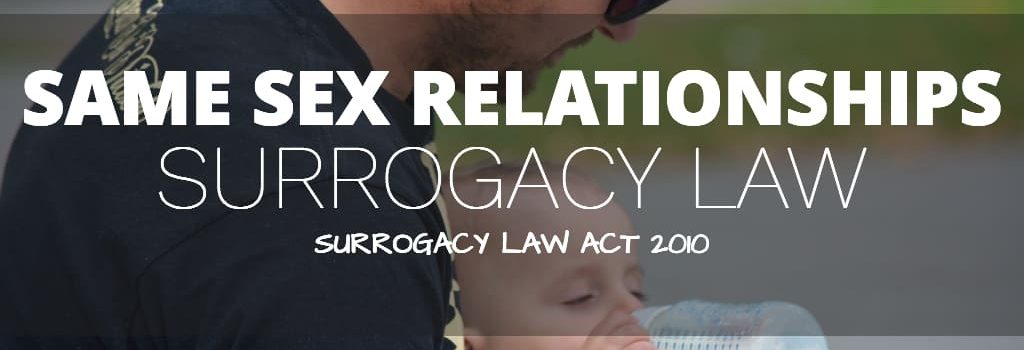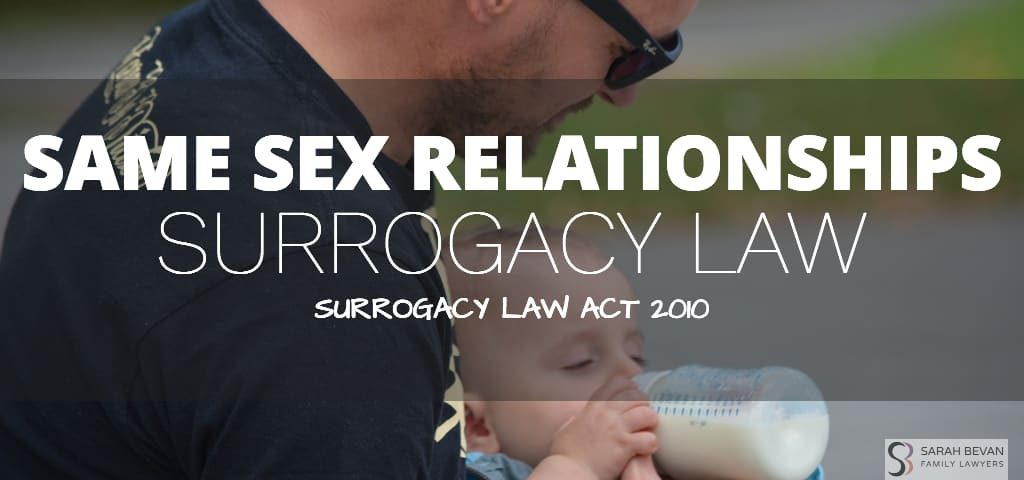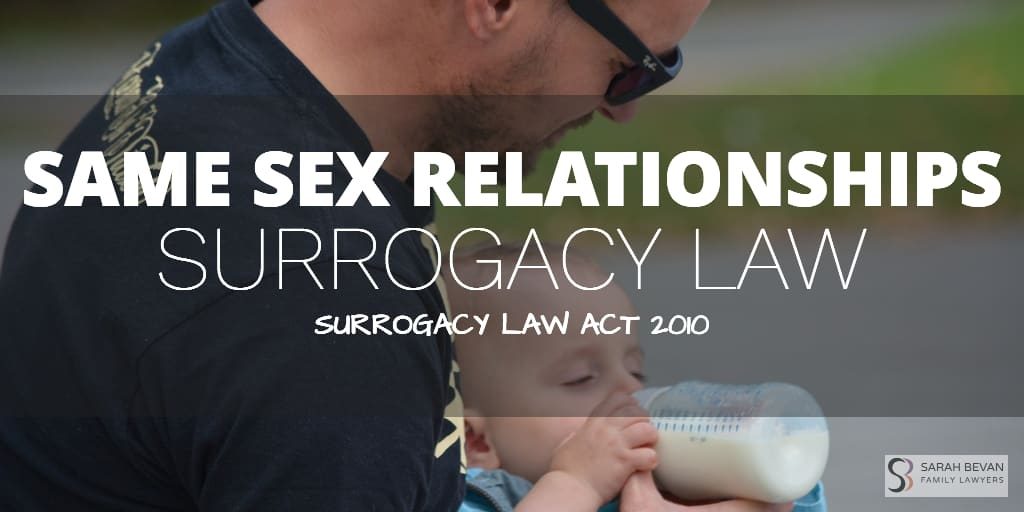- Sydney Family Lawyers
- (02) 9633 1088
- mail@sbfamilylawyers.com.au
Same-Sex Relationships Surrogacy Lawyers
Same-Sex Relationships Surrogacy Law Australia
Surrogacy provides a way by which same-sex couples and others with a medical or social need may become the legal parents of a child. For a successful surrogacy arrangement in Australia, it is essential to speak with an experienced surrogacy lawyer.
The process of becoming the registered parents on a child’s birth certificate through a surrogacy arrangement is by no means a straightforward task and any same-sex couple considering surrogacy to become parents should seek advice from a family lawyer with experience in surrogacy law.
Sarah Bevan Family Lawyers are experts in surrogacy law and were responsible for an application resulting in a landmark decision where a same-sex couple was registered as parents on their child’s birth certificate.
Same-Sex Surrogacy Law
In NSW surrogacy is regulated under the Surrogacy Act 2010. The guiding principle of the Surrogacy Act is that the best interests of the child of the surrogacy arrangement are paramount. This means that in reviewing a surrogacy arrangement, the court will give priority to the best interests of the child in deciding whether to transfer the parentage of the child.
For a same-sex couple to become the legal parents of a child, the following must be abided by.
Firstly, there cannot be a commercial surrogacy arrangement. This means that the woman who is to become pregnant with the child, who is to become the child of a same-sex couple, must not receive a fee, reward or other material benefit or advantage. The birth mother may, however, be reimbursed for the surrogacy costs. The surrogacy must be altruistic.
To become legally recognized as the birth parents, a same-sex couple must make an application for a parentage order. A parentage order is made with the Supreme Court at least 30 days after the child is born and before the child is 6 months old. The child must also be in the care of the same-sex couple when the application is made. Once the court grants the parentage order, the intended parents can apply to have the child’s birth certificate amended so that they are recorded as being the legal parents of the child.
Under the Surrogacy Act, an application for a parentage order must be supported by a report about the application prepared by an independent counsellor. This report must contain the counsellor’s opinion as to whether the proposed parentage order is in the best interests of the child and the reasons for that opinion.
Significantly, where the child has any living birth siblings, the court will only make a parentage order if the court also makes or proposes to make a parentage order in relation to each birth sibling. This means that if the child has any living siblings, all of the children must become children of the same applicant or applicants. A birth sibling of a child is any brother or sister of the child who is born as a result of the same pregnancy as the child.
The birth mother, or woman who is to give birth to the child who is to become the child of a same-sex couple, must have been at least 25 years old when she entered into the surrogacy arrangement.
It is mandatory in all cases that the birth mother was at least 18 years old when she entered into the surrogacy arrangement. The intended parents must also be at least 18 years old when entering into a surrogacy arrangement.
Importantly, the court must be satisfied that there is a medical or social need for the surrogacy arrangement. Where there are 2 intended parents under the surrogacy arrangement and the intended parents are 2 men or 2 eligible women, that will satisfy the court that there is a medical or social need for a surrogacy arrangement. An eligible woman is a woman who is unable to conceive a child without they’re being a medical issue in relation to the woman or child (see Section 30).
Unless the surrogacy arrangement is a pre-commencement surrogacy arrangement, it must be in the form of an agreement in writing. This agreement must be signed by the birth mother, the birth mother’s partner (if any) and the applicant or applicants.
Under Section 36, each of the affected parties to a surrogacy arrangement must have received legal advice from an Australian legal practitioner about the surrogacy arrangement and its implications before entering into the arrangement. This does not apply to a pre-commencement surrogacy arrangement.
Once a parentage order is made, the child becomes a child of the intended parent or parents named in the order and the child is no longer the child of the birth parent(s).
For more information on same-sex surrogacy arrangements, contact Sarah Bevan Family Lawyers. Our offices are conveniently located in Surry Hills, Crows Nest and Parramatta. To speak to a specialist family lawyer about same-sex surrogacy or any family law matter contact Sarah Bevan Lawyers on 1300 007 235 or email at mail@sbfamilylawyers.com.au.




